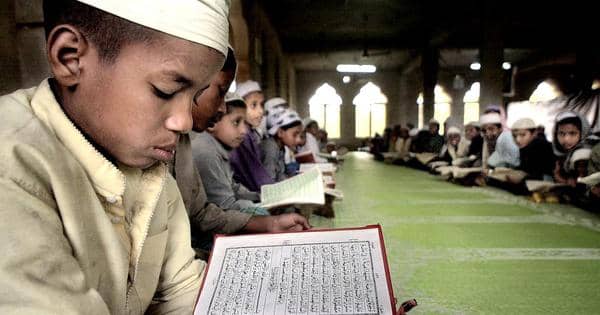
It also sets aside the judgment of the Allahabad High Court, wherein it held that the Uttar Pradesh Board of Madrasa Education Act was unconstitutional.
The court also held that the provisions of the Madrasa Act are reasonable as they subserve the need for regulation and secure the interests of minority communities by regulating education standards, conducting examinations, and conferring certificates allowing them to pursue higher education.
The order was pronounced by a bench comprising Chief Justice of India CJI DY Chandracuhd, Justice JB Pardiwala, and Manoj Misra.
https://twitter.com/dhruvrahtee/status/1853723025440452975
The Madrasa Act lays down the education standards in the madrasas recognized by the Board.
The Act is thus by the positive obligation of the State to ensure that the students studying in the recognized madrasas acquire a degree of proficiency that would enable them to participate constructively in society and earn a living.
Article 21A and the Right to Education Act must be read harmoniously with the right of religious and linguistic minorities to establish and administer educational institutions of their choice. The Board, with the approval of the state government, can enact regulations to ensure that religious minority education imparts secular education of requisite standards without destroying its minority character.
The Madarsa Act is within the legislative competence of the State Legislature and traceable to Entry 25 of List 3. However, the provisions of the Madrasa Act that seek to regulate higher education degrees such as ‘Fazil’ and ‘Kamil’ are unconstitutional as they conflict with the UGC Act, which has been enacted under Entry 66 of List 1.
The latter legislative scheme of the UP Act was to standardize the education prescribed in Madrasas.
Allahabad High Court erred in holding that UP madrasa law had to be struck down because it violated the basic structure, i.e., the principle of secularism.
A Bench headed by CJI DY Chandrachud, Justice JB Pardiwala, and Justice Manoj Misra had reserved the judgment on 22nd October while hearing eight such petitions, including the lead one filed by Anjum Kadari, filed against the verdict passed by Allahabad High Court.
On March 22, the Allahabad High Court declared the Act “unconstitutional” and violative of the principle of secularism and asked the state government to accommodate madrasa students in the formal schooling system.



